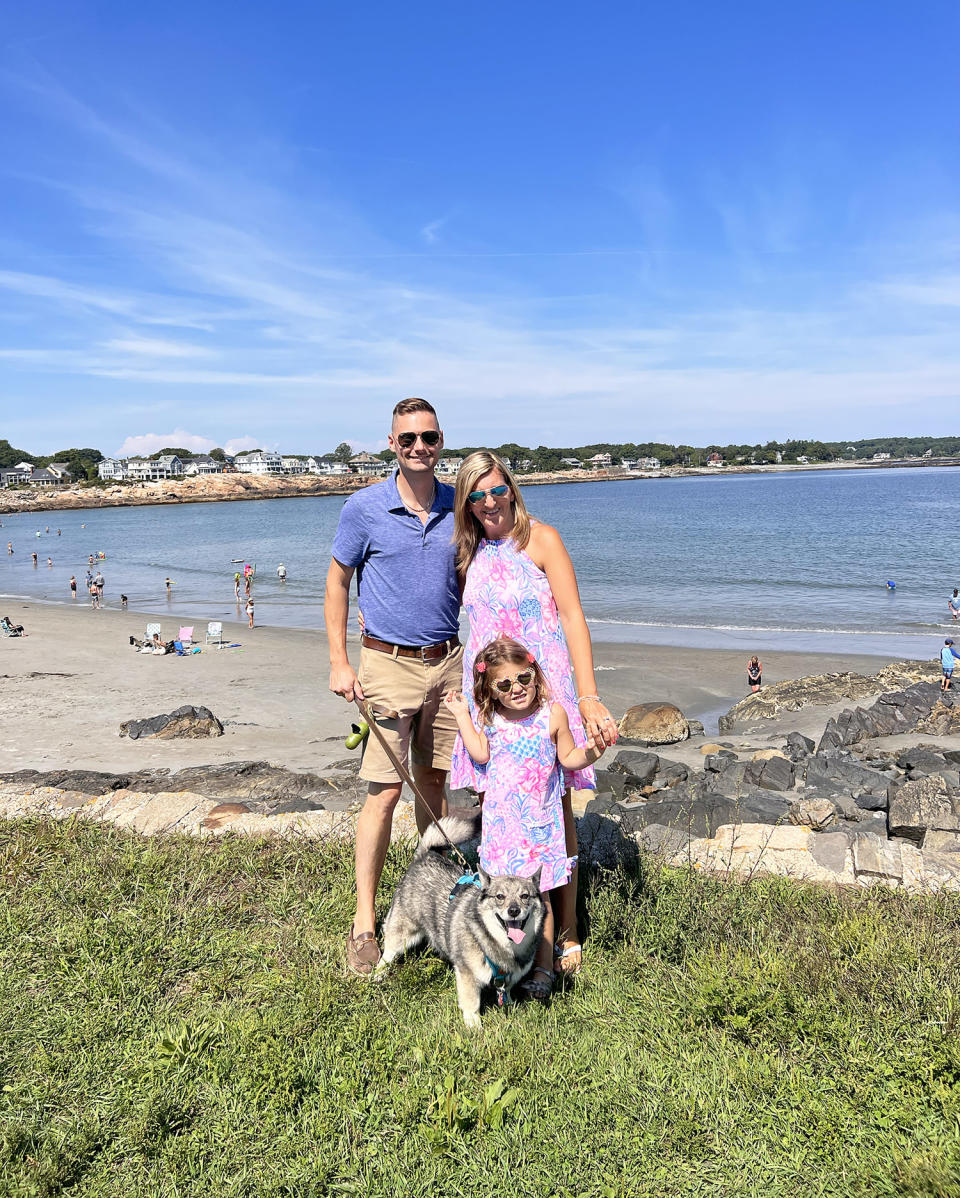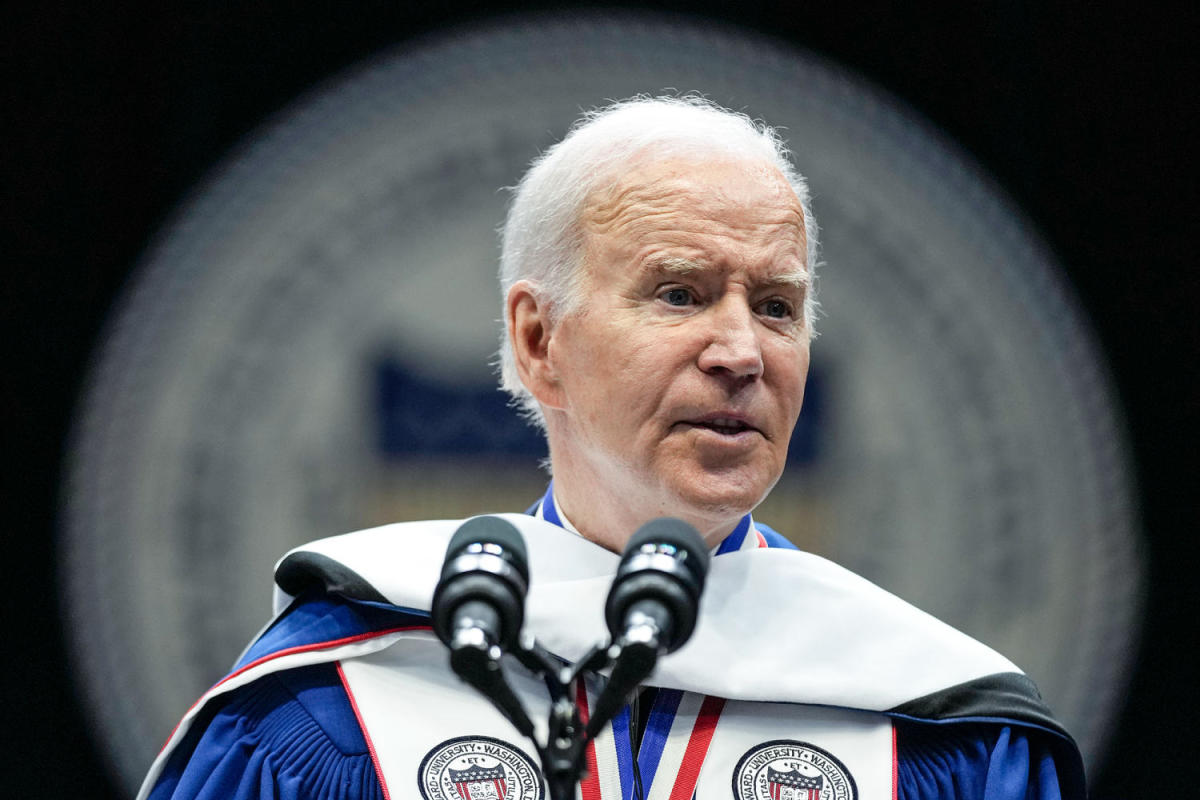It was June 2020, and Stefania Frost’s family had just gotten together at a barbecue for the first time since the pandemic started. But the next day, Frost, a second-grade teacher in Waltham, Massachusetts, noticed a pain in her right side.
“I thought it was something that I ate or some kind of stomach bug going around,” Frost, 40, tells TODAY.com. About a week later, however, the pain hadn’t gone away, so she made a doctor’s appointment.
Thinking the pain could be a sign of appendicitis, Frost’s doctor sent her for imaging, which revealed inflammation around her colon. Frost was put on a round of antibiotics but her doctor also sent her for a colonoscopy. The pain subsided over the next few days, but Frost still went for the colonoscopy the next week — and received shocking results.
“Afterward, the doctor talked to me,” she recalls. “I’m just waking up, and they said there was a tumor in the colon.”
Due to protocols during the COVID-19 pandemic, Frost wasn’t able to have her husband or her daughter in the room. “It was really hard and very confusing,” she says.

Frost was diagnosed with stage 3 colon cancer, which had spread to her lymph nodes.
The diagnosis came as a total surprise to Frost, who was 36 at the time and only had one noticeable symptom: abdominal pain.
She didn’t have any other gastrointestinal issues or blood in her stool, she says. Her grandfather passed away due to colon cancer and her mom and uncle received extra screening as a result, “but they never said anything about the grandkids,” she explains. (Genetic testing later revealed her cancer was not hereditary.)
In mid-July, just weeks after the barbecue, Frost underwent surgery to remove the tumor in her colon and also had 49 lymph nodes removed.
It’s unfortunately “more common than not” for younger patients to be diagnosed with later-stage colorectal cancer, Dr. Aparna Parikh, Frost’s oncologist and medical director of the Center for Young Adult Colorectal Cancer at Mass General Brigham, tells TODAY.com.
Researchers are still working to understand the recent rise in colorectal cancers in people under 50 — and why they’re so often diagnosed with more advanced diseases, Parikh says.
For some, “there’s a big diagnostic delay,” she explains. It’s not unusual for patients to assume or be told by their primary care doctor that they’re dealing with something like hemorrhoids or irritable bowel syndrome, Parikh says, even when they have symptoms that could suggest colorectal cancer.
According to Parikh, possible signs of colon cancer you shouldn’t ignore include:
Treatment went well, but side effects and fertility struggles still weighed on Frost.
After the diagnosis, Frost would need to undergo chemotherapy. “But the problem was I wanted to get pregnant again,” she says.
At the time, her friends were having their second kids or pregnant, and Frost was ready for a second child. So, before she started chemotherapy, Frost went through an egg retrieval cycle in the hopes of getting embryos.
“I only got one (embryo),” she says, but the goal of getting pregnant again helped get her through an intensive three months of chemotherapy.


She felt cold and her hands were numb due to side effects, and couldn’t drink anything cold. Her infusions took place in the fall of 2020, early in the COVID-19 pandemic, so “I had to be by myself, so that was hard too,” Frost says. Because of the surgery, “I couldn’t lift my daughter,” Frost recalls, so her mother would take her for the day. “It was hard not to have that relationship.”
As hard as the treatment was, “I just really wanted to get pregnant,” Frost recalls. “My motivation was like, ‘I’m going to get through this, I’m going to do it and then I’m going to get pregnant.'”
Her chemotherapy ended in November and, when January rolled around, Frost and her husband decided to try implanting the embryo.
“It didn’t take,” Frost says, chalking it up to a diminished ovarian reserve, meaning fewer healthy eggs in the ovaries, and the effects of chemotherapy.
There are multiple factors at play when it comes to fertility and cancer treatment, Dr. Parikh says, including a patient’s baseline ovarian reserve and the specific treatments they need. Radiation, which is typically needed to treat rectal cancer, she says, can reduce fertility, as well as some types of chemotherapy.
“We counsel people that the colon cancer chemotherapy that we use, especially if we use a more aggressive one, may cause infertility,” Parikh explains, “but it’s not a guarantee.”
Frost ended up going through about two years of infertility treatment. “I went through a couple of cycles of IVF (and) IUI, and I never got pregnant,” Frost says. “That was really hard for me.”
“Surround yourself with positivity.”
Today, Frost is nearly four years out from her colon cancer diagnosis and has her blood tested regularly to monitor for the possibility of a recurrence as part of a clinical trial. So far, she’s stayed cancer-free, but she’s also navigating a complex set of emotions.
“I’m so happy that I’m good, I’m recovering and I’m cancer-free,” she says. “But I have to deal with not having another baby.” Adding to that is the inevitable anxiety about the possibility of her cancer coming back. “Every time I have a scan it’s scary,” Frost says.
When things are tough or when she’s reminded of her fertility struggles, Frost says she focuses on positivity and recommends others “surround yourself with positive people.”
“I got through chemo just being like, ‘I can do this. This is not going to take over my life,'” she says. At the same time, “It’s okay to cry,” she says, “and there are days when I still cry.”
Frost also encourages her friends to take their health seriously. “I’m trying to tell other people, especially my friends, ‘Go get colonoscopies when you’re 45,'” she says. Or if they feel concerning symptoms, she tells them to go to the doctor quickly rather than waiting it out.
Parikh agrees: “Listen to your body. And advocate for yourself if you’re not sure.”
This article was originally published on TODAY.com

Rachel Carter is a health and wellness expert dedicated to helping readers lead healthier lives. With a background in nutrition, she offers evidence-based advice on fitness, nutrition, and mental well-being.








